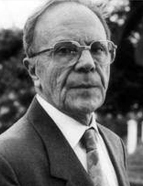

It would first be necessary to list the theoretical and methodological assumptions to assist anyone wishing to “hoist the sails” and navigate through such a clouded period. It would also be necessary to bear in mind not only the changes that abounded in this century, but also the constancies. And it is by interweaving these two perspectives that the societies of a given period may be understood. As in O Carácter social da Revolução de 1383, he believed that the study of 19th century Portugal should be guided by a comparative analysis of several distinct geographical components; the national scene against the Western European context, thus distinguishing genuinely national phenomena from those that were no more than the extension of a global process, with some Portuguese nuances. He further claimed that, to solve the issue of excess documentation, which usually goes hand in hand with the research on contemporaneity, a collective approach needed to be adopted, which was something he sought to apply to “his own” works.
The wide range of themes he covered with his 19th century research, in addition to his multiple interests, may be justified by the holistic vision that ought to be applied to historical understanding. Without resorting to oversimplifications and distorted views, it would be impossible to fully grasp the complexity of historical issues without at the same time considering and comparing mental, technical, economic, and political perspectives. The reality that was to be objectively reconstructed was one, and all these perspectives were mutually influential (Do Sebastianismo ao Socialismo [From Sebastianism to Socialism], 1969, 20-21); to divide them into impervious compartments without acknowledging the existence of other perspectives would be to further narrow the understanding of this past which, in its entirety, was already unintelligible. It should be noted that not much research had been done on this period, and the dispersion of Serrão's work may be justified by the need to branch out into different directions in order to attain an all-encompassing understanding. Unfortunately, he failed to realize his plan to build a history of 19th century Portuguese society. (Crítica [Criticism], no. 4, Feb. 1972, p. 7).
Portuguese university historiography was traditionally not particularly inclined towards philosophical reflection on its own science. This tendency became more accentuated during the Estado Novo [New State] and not even the creation of a degree in history and philosophy (1930) solved this problem (L. Reis Torgal, História da história em Portugal [History of the History of Portugal], 1996, 258).
